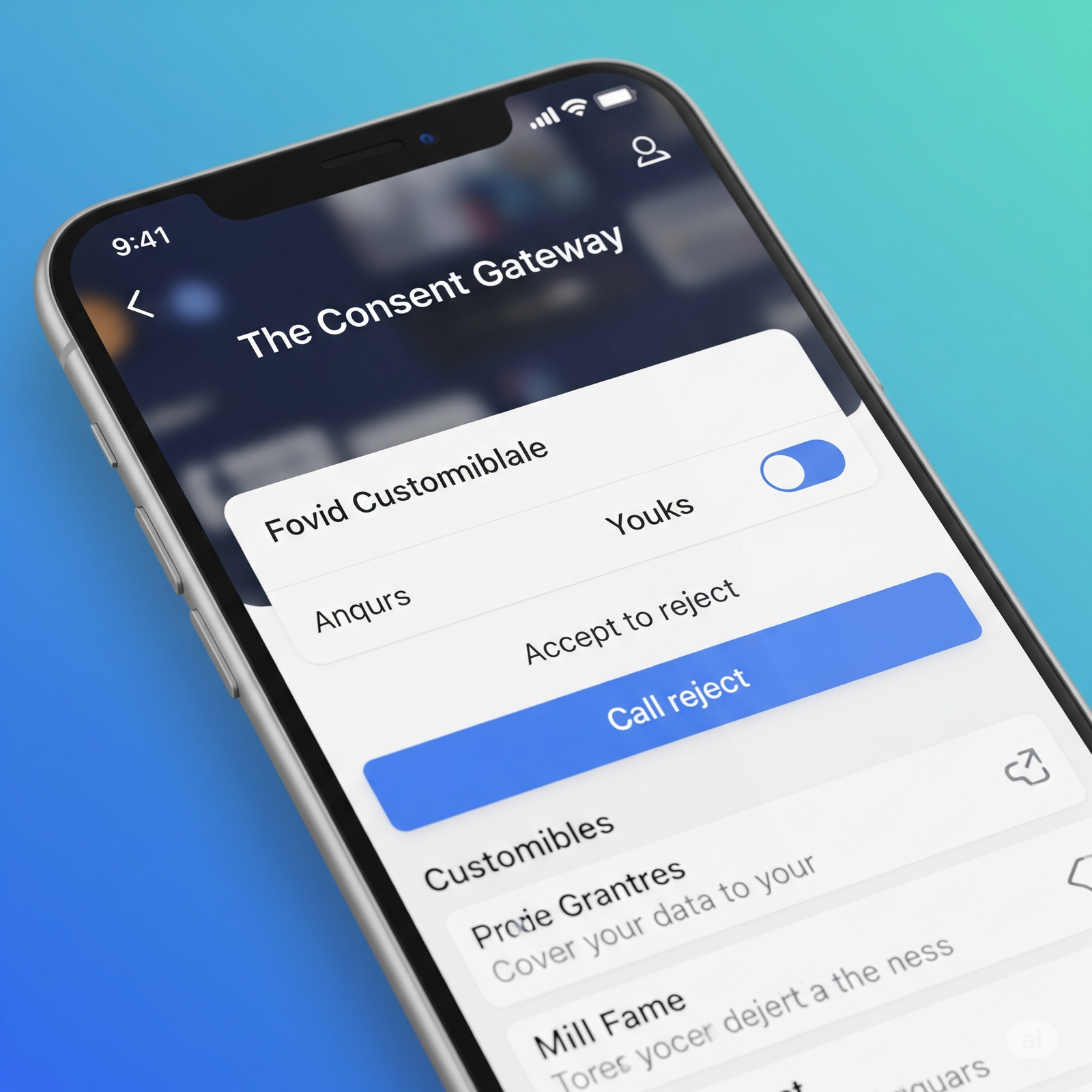Unlocking Your Financial Story: How Account Aggregators Are Redefining Open Banking in India
Ever wished your financial life was a little less… scattered? Imagine a world where your bank statements, investment portfolios, insurance policies, and even your GST returns could all talk to each other, painting a complete picture of your financial health. For years, this was largely a dream, often involving tedious paperwork, countless logins, and a feeling of being constantly behind the curve. But in India, that dream is rapidly becoming a reality, thanks to the quiet but powerful rise of Account Aggregators (AAs). These innovative entities are not just another piece of fintech jargon; they are the unsung heroes building the superhighways for India’s open banking revolution. They’re empowering millions of individuals and businesses to take unprecedented control over their financial data, transforming everything from how you apply for a loan to how you manage your daily expenses. This isn’t just about convenience; it’s about a fundamental shift in financial power, putting you, the consumer, firmly in the driver’s seat. So, buckle up, because we’re about to explore how Account Aggregators are not just impacting open banking, but actively rewriting the rules of engagement in India’s vibrant fintech landscape, creating a future that’s more transparent, inclusive, and financially intelligent for everyone.
The Problem: A Fragmented Financial Landscape
For decades, the Indian financial system, much like many others globally, has operated in silos. Your savings account data resided with one bank, your mutual fund investments with another AMC, and your insurance policies with a third provider. This fragmentation created significant hurdles for both consumers and financial institutions. Consumers struggled to get a holistic view of their finances, making it difficult to budget effectively, apply for loans efficiently, or even understand their net worth. Financial institutions, on the other hand, faced challenges in underwriting loans, assessing creditworthiness, and offering personalized products due to the lack of easy, consent-based access to customer data spread across various platforms. This data asymmetry often led to longer processing times, higher interest rates for borrowers, and a general lack of innovation in product offerings. The sheer effort required to gather documents and verify information was a significant friction point in every financial transaction, from applying for a simple personal loan to getting a mortgage. It was clear that a more interconnected, consumer-centric approach was needed to unleash the full potential of India’s digital economy.

Introducing Account Aggregators: The Consent-Driven Data Superhighway
Enter the Account Aggregators (AAs). These are not just another app or a bank. Regulated by the Reserve Bank of India (RBI), AAs are essentially secure, consent-based frameworks that facilitate the seamless and secure sharing of financial data between various Financial Information Providers (FIPs) and Financial Information Users (FIUs). Think of them as digital traffic controllers for your financial data. When you, the consumer, grant explicit consent, an AA can pull data from your bank accounts, credit cards, mutual funds, insurance policies, and even pension funds (FIPs) and securely share it with a lending institution, an wealth management app, or any other financial service provider (FIU) you choose. Crucially, AAs do not store your data. They simply act as a conduit, encrypting and transmitting the information directly from the FIP to the FIU. This ‘data piping’ model ensures privacy and security, as your data is never seen or stored by the AA itself. This consent-driven architecture is a game-changer, moving away from the traditional model where financial institutions held proprietary control over customer data, towards an open, interoperable system that puts the individual in charge of their own financial information.
How AAs Power Open Banking: Beyond Just Data Sharing
The concept of “open banking” revolves around the secure sharing of financial data through APIs (Application Programming Interfaces) to foster innovation, competition, and better customer experiences. Account Aggregators are the foundational layer enabling this in India. By providing a standardized, secure, and consent-based mechanism for data exchange, AAs effectively de-risk data sharing for both consumers and institutions. For consumers, it means they no longer need to download bank statements, scan documents, or manually input financial information. With a few clicks, they can grant consent for an FIU to access their financial history directly and securely. For FIUs, it means instant, verified access to comprehensive financial data, leading to faster loan approvals, more accurate credit assessments, personalized financial advice, and tailored product offerings. This goes far beyond just sharing a bank statement; it allows for the aggregation of transactional data, investment performance, insurance premium payments, and more, offering a truly holistic view. This shift is not just about efficiency; it’s about building an ecosystem where innovative fintechs can thrive by leveraging data, while ensuring consumer trust and data privacy are paramount.
Transforming Lending: Faster, Fairer, and More Inclusive Credit
One of the most immediate and profound impacts of Account Aggregators is on the lending landscape. Traditionally, securing a loan in India often involved a cumbersome process of submitting physical documents, waiting for manual verification, and facing delays. With AAs, lenders (FIUs) can, with your consent, instantly access verified financial information from multiple sources, including bank statements, GST data for businesses, and income proofs. This real-time access allows for much faster and more accurate credit assessments. For individuals, this means quicker loan approvals for personal loans, home loans, or car loans. For small and medium-sized enterprises (SMEs), who often struggle with formal credit due to lack of traditional collateral or detailed financial records, AAs offer a lifeline. By providing verifiable transactional data, SMEs can now build a digital financial footprint, making them more attractive to lenders and unlocking access to much-needed credit. This inclusivity is a cornerstone of India’s financial empowerment agenda, enabling millions who were previously underserved by formal credit channels to access financing that can fuel their growth and aspirations.
Personalized Wealth Management and Financial Planning
Beyond lending, Account Aggregators are revolutionizing how individuals manage their wealth and plan their finances. Imagine a wealth management app that, with your consent, can pull data from all your mutual fund investments, stock portfolios, and fixed deposits across different institutions. It can then provide you with a consolidated view of your net worth, analyze your asset allocation, track your investment performance in real-time, and offer personalized recommendations based on your actual financial situation and risk appetite. This level of comprehensive, data-driven financial advice was previously the domain of high-net-worth individuals who could afford dedicated financial advisors. Now, AAs are democratizing access to sophisticated financial planning tools. Fintech platforms can leverage this aggregated data to create intelligent dashboards, offer automated investment advice, and even identify opportunities for tax optimization. This empowers the average Indian consumer to make more informed financial decisions, helping them achieve their long-term financial goals with greater clarity and efficiency.

The Role of Consent and Data Privacy: Building Trust in the Digital Age
At the heart of the Account Aggregator framework lies explicit and granular consent. Consumers have complete control over what data is shared, with whom, and for how long. Before any data is transmitted, the AA prompts the consumer for consent, detailing the specific information requested by the FIU. This transparency and control are crucial for building trust in a digital ecosystem where data privacy concerns are paramount. The architecture ensures that AAs themselves do not see or store the data, acting purely as a secure pipeline. Furthermore, the data shared is in an encrypted format, ensuring its security during transit. This focus on consumer consent and robust data security differentiates the Indian AA model and instills confidence among users. It’s a powerful mechanism that allows individuals to harness the power of their data for their own benefit, without compromising their privacy, fostering a healthy environment for digital financial innovation to flourish responsibly.
Challenges and the Road Ahead: Scaling and Adoption
While the potential of Account Aggregators is immense, the journey ahead is not without its challenges. One key hurdle is the widespread adoption by both FIPs and FIUs. While major banks and financial institutions are onboarding, ensuring that smaller players and niche service providers also join the ecosystem is crucial for its full potential to be realized. Educating consumers about the benefits and security of AAs is another significant task. Many individuals are still wary of sharing financial data online, and clear communication about how AAs work and the control they offer is essential for widespread trust and usage. Interoperability challenges, ensuring seamless data flow between diverse systems, will also require ongoing technical collaboration. However, the regulatory push from the RBI and the government’s emphasis on digital public infrastructure, like the India Stack, bodes well for the future. As more players come on board and consumer awareness grows, Account Aggregators are poised to become an indispensable part of India’s digital financial fabric, driving unprecedented growth and innovation in the years to come.
Conclusion: A New Era Dawns for Indian Fintech
The journey of Account Aggregators in India is far more than a technical innovation; it’s a profound paradigm shift in how we interact with our finances. What started as a vision for seamless data sharing has quickly evolved into a cornerstone of India’s ambitious open banking initiative. By empowering individuals and businesses with unprecedented control over their financial data, AAs are not just streamlining processes but are actively fostering a more inclusive, transparent, and efficient financial ecosystem. We’ve moved from a world of scattered statements and arduous verifications to one where your financial story can be told holistically and securely, on your terms. This shift is democratizing access to credit, personalizing wealth management, and unlocking a wave of innovation from fintechs eager to build on this robust infrastructure. As more Financial Information Providers and Users come online, and as consumer awareness grows, the true potential of this framework will continue to unfold. India is truly leading the charge in building a digital public infrastructure that prioritizes user consent and data privacy while unleashing the power of data for economic growth. The future of finance in India isn’t just digital; it’s open, it’s consent-driven, and it’s being shaped, one aggregated account at a time, by these quiet but mighty technological enablers. Get ready, because your financial future just got a whole lot smarter.

Frequently Asked Questions (FAQs)
What exactly is an Account Aggregator (AA) in India?
An Account Aggregator (AA) is a new type of financial entity in India, regulated by the Reserve Bank of India (RBI), that facilitates the secure and consent-based sharing of financial data. Unlike other financial institutions, AAs do not store your data, nor do they engage in any financial transactions like lending or investing. Their sole purpose is to act as a secure, encrypted conduit between Financial Information Providers (FIPs) – such as banks, mutual funds, and insurance companies – and Financial Information Users (FIUs) – like lending apps, wealth management platforms, or financial advisors. When you grant explicit consent, the AA fetches your data from an FIP and securely transmits it to an FIU, empowering you with control over who accesses your financial information and for what purpose. This model ensures that your data remains private and is only used with your explicit permission.
How do Account Aggregators ensure the security and privacy of my data?
Data security and privacy are at the core of the Account Aggregator framework. Firstly, AAs are strictly regulated by the RBI, which mandates stringent security protocols. Secondly, AAs themselves do not store any of your financial data; they simply act as a pass-through mechanism, encrypting the data during transit from the FIP to the FIU. This means your sensitive information never resides on the AA’s servers. Thirdly, all data sharing is based on explicit, granular consent from the user. You have full control over what data is shared (e.g., only bank statements, not investments), with whom, and for how long. The consent can also be revoked at any time. This consent-driven architecture, combined with end-to-end encryption and regulatory oversight, makes the AA framework a highly secure and private way to share your financial information.
What kind of financial information can be shared through an Account Aggregator?
The range of financial information that can be shared through an Account Aggregator is quite broad and is continuously expanding. Currently, it includes data from various types of accounts and financial products. This typically covers bank deposits (savings, current, fixed deposits), credit card statements, mutual fund holdings, insurance policies (life and general), pension funds (like NPS), and even data from GST accounts for businesses. The goal is to provide a comprehensive view of an individual’s or business’s financial footprint across different institutions. This consolidated data can then be used by FIUs to offer more tailored and efficient services, from faster loan approvals to personalized financial planning and wealth management advice, all with your explicit consent.
What are the key benefits of using an Account Aggregator for consumers?
For consumers, Account Aggregators offer several significant benefits. Primarily, they provide a single, unified view of your financial life, eliminating the need to log into multiple platforms. This makes financial planning, budgeting, and tracking investments much simpler. Secondly, AAs enable faster and more convenient access to financial services; for example, you can apply for a loan with instant, verified data sharing instead of submitting physical documents. Thirdly, they enhance financial inclusion, particularly for SMEs and individuals with limited traditional credit history, by allowing them to share alternative data points for credit assessment. Lastly, AAs empower consumers with complete control over their data, deciding who accesses it, for what purpose, and for how long, ensuring transparency and privacy in the digital financial ecosystem.
How do Account Aggregators impact the lending process in India?
Account Aggregators are revolutionizing the lending process in India by making it significantly faster, more efficient, and potentially more inclusive. Lenders (FIUs), with the borrower’s consent, can instantly access verified financial statements, income proofs, and other relevant data directly from FIPs. This eliminates the need for manual document submission and verification, drastically reducing loan processing times. For borrowers, this means quicker access to funds. Moreover, AAs enable lenders to conduct more accurate and comprehensive credit assessments by accessing a broader range of real-time data, which can lead to more favorable loan terms and interest rates for eligible borrowers. For segments like SMEs, who often lack traditional collateral, AAs provide a mechanism to demonstrate creditworthiness through verifiable transactional data, unlocking access to formal credit.
Can I revoke my consent for data sharing through an Account Aggregator?
Yes, absolutely. One of the fundamental principles of the Account Aggregator framework is that consumers retain complete control over their data. You can revoke your consent for data sharing at any time, through the AA app or platform you are using. Once consent is revoked, the AA will immediately stop sharing your data with the specific Financial Information User (FIU) you had previously authorized. This ability to revoke consent provides an essential layer of security and ensures that your financial information is shared only for the duration and purpose you explicitly approve, putting you firmly in charge of your digital financial footprint.
Are Account Aggregators a replacement for banks or financial institutions?
No, Account Aggregators are not a replacement for banks or other financial institutions; rather, they are an enabling layer that enhances the services offered by these institutions. AAs do not hold your money, issue loans, or offer investment products. Their role is purely to facilitate the secure and consent-based flow of financial data between existing FIPs (like banks, AMCs, insurance companies) and FIUs (which can also include banks and other financial service providers). They act as a neutral and secure bridge, allowing different parts of the financial ecosystem to communicate more effectively and efficiently, ultimately leading to better and more personalized services for the consumer.
How do Account Aggregators support Open Banking initiatives in India?
Account Aggregators are the foundational pillar for Open Banking in India. Open Banking aims to enable third-party financial service providers to access consumer banking data (with consent) to create new products and services. AAs provide the standardized, secure, and consent-driven infrastructure required for this data exchange. Without AAs, each bank and financial institution would need to build separate API connections with every single fintech or service provider, leading to fragmentation and inefficiency. AAs streamline this process, creating a single, interoperable layer through which data can flow, fostering greater competition, innovation, and ultimately, a more connected and consumer-centric financial landscape for India.
What is the difference between an Account Aggregator and a neobank?
The distinction between an Account Aggregator (AA) and a neobank is crucial. A neobank is a digital-first bank that offers traditional banking services (like savings accounts, debit cards, and loans) entirely online, without physical branches. They are typically licensed as full-fledged banks or partner with traditional banks to provide services. An Account Aggregator, on the other hand, is a data-sharing consent manager. It does not offer any banking services, hold deposits, or provide loans. Its sole function is to securely transmit your financial data between different financial institutions with your consent. While a neobank might use an AA to access your financial data from other banks (with your permission) to offer personalized services, an AA itself is not a bank and does not perform banking functions.
How can I start using an Account Aggregator?
To start using an Account Aggregator, you typically need to sign up with an Account Aggregator app or platform that has been licensed by the RBI. Several such AAs are now operational in India (e.g., FinVu, OneMoney, CAMS Finserv, NADL). Once you register with an AA, you can then link your various financial accounts (from different banks, mutual funds, etc.) to it. The AA platform will guide you through the process of providing explicit consent for data sharing with specific Financial Information Users (FIUs) for particular services. Many financial service providers, like lending apps or wealth management platforms, are also integrating AA functionality directly into their services, allowing you to consent to data sharing within their existing user flows.
